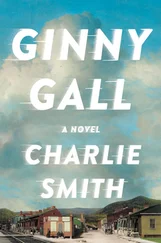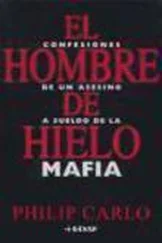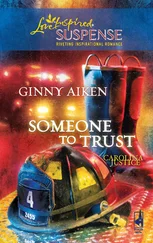Ginny Aiken - Priced to Move
Здесь есть возможность читать онлайн «Ginny Aiken - Priced to Move» весь текст электронной книги совершенно бесплатно (целиком полную версию без сокращений). В некоторых случаях можно слушать аудио, скачать через торрент в формате fb2 и присутствует краткое содержание. Жанр: Старинная литература, на английском языке. Описание произведения, (предисловие) а так же отзывы посетителей доступны на портале библиотеки ЛибКат.
- Название:Priced to Move
- Автор:
- Жанр:
- Год:неизвестен
- ISBN:нет данных
- Рейтинг книги:5 / 5. Голосов: 1
-
Избранное:Добавить в избранное
- Отзывы:
-
Ваша оценка:
- 100
- 1
- 2
- 3
- 4
- 5
Priced to Move: краткое содержание, описание и аннотация
Предлагаем к чтению аннотацию, описание, краткое содержание или предисловие (зависит от того, что написал сам автор книги «Priced to Move»). Если вы не нашли необходимую информацию о книге — напишите в комментариях, мы постараемся отыскать её.
Priced to Move — читать онлайн бесплатно полную книгу (весь текст) целиком
Ниже представлен текст книги, разбитый по страницам. Система сохранения места последней прочитанной страницы, позволяет с удобством читать онлайн бесплатно книгу «Priced to Move», без необходимости каждый раз заново искать на чём Вы остановились. Поставьте закладку, и сможете в любой момент перейти на страницу, на которой закончили чтение.
Интервал:
Закладка:
“I think not. Let’s go to the Mogok Valley. That’s what we came to see in Myanmar.”
We get into the van provided for us, and our driver greets us with a slight nod. He too is packing . . . something. The bulge at his waist looks much too much like those of his cohorts. Miss Mona and I hold hands to pray.
The drive from Mandalay to Mogok has to be the loneliest in the world. For a while, the one-and-a-half-lane road runs by the Irrawaddy River.
The views are unbelievably beautiful. Pagodas and shrines that look like inverted cones dot the green, green landscape. Every so often along the road, you see a man or a woman loaded down with parcels. The river itself is wide and runs gently between the grassy banks.
At one point, we spot a battered, rusty ferry, loaded to the gills with bag upon bag of freight piled up to the ceiling of the lower level. On the next level up, folks are crammed around tables and benches. Metal barrels wreathed in puffs of smoke have been co-opted for cooking, and a woman behind a counter covered with what looks like Myanmar-style fast food serves the travelers. While we watch, a teenager dumps out one of the cooking barrels overboard—trash removal’s no big deal on the Irrawaddy.
“Oh, dear,” Miss Mona says a little later. “This doesn’t look good.”
“This” is what can only be called a military checkpoint. And considering the country is run by a military dictatorship, we shouldn’t be surprised. Still, something about AK47s just doesn’t conjure up warm fuzzies.
Miss Mona and I cling to each other again, our voices quiet in prayer. When we chime in our amens, I glance at the S.T.U.D.’s stud. Max looks ready to jump out of his skin, so I turn back to the Lord.
“Father God? It’s me again, okay? I’m still asking you to keep us all safe, Miss Mona, Max, Allison, Hannah and her camera, and the rest of our crew. We’re real strangers in a really strange land, and you’re our only protection—those guns our ‘escorts’ are wearing are just as scary as the ones the uniformed military guys have. Thanks for all the protection you’ve blessed us with already, and I can’t wait to see what you’ll do next. I love you, Father.”
Miss Mona whispers, “Amen.”
I catch a glimpse of Max’s expression. Sure enough, he’s thinking about my “weird” way of talking faith. It might seem weird to him, but it works for me. I know my Lord hears me. The Bible says he listens, and that’s good enough for me.
When I look out the window, I see our “escorts” coming back to the van. Lucky for us, they must have said the right thing or had the right kind of papers or the right color money, because in minutes we’re on our way again.
Max relaxes. “Bet our trip would’ve ended back there if these guys hadn’t been with us.”
“There’s no getting around this place without them,” I say. “That’s what happens in the communist world.”
“Oh, look, Andie!” Miss Mona says. “Isn’t this all so sweet?” If I didn’t know better, I would think we’d just boarded a time-travel machine. Very simple, rustic farms dot the flat land every so often. Less frequently, we pass small villages. The locals’ favorite form of transportation seems to be foot traffic, but the really wealthy ones ride bicycles and oxcarts. Cars? Maybe two or three.
After a couple of other checkpoint moments, the road begins to twist and turn, taking us into the mountains that had seemed so far away when we saw them from outside the hotel. We pass timber plantations and more quaint hill villages, these springing from the jungle vegetation that seems thicker than when we started. Later still, we see scattered mining operations, and that gets my juices going. It’s the first sign that we’re coming into gem country.
I can’t stop myself. “It’s happening!”
Miss Mona leans closer to the window. “Oh, Andie. I do wish your auntie was with us. She’d just love this.”
“She would, but can you imagine how much trouble she’d get into? Just think what she might have done if she’d seen those AK47s.”
“She’d likely ask the military men to show her how to use the dreadful things. Remember, she wanted to muck out that stall.”
“Who can forget? And you know? If she had asked for automatic weapon lessons, we’d all be guests of the Mandalay city jail . . . for-eh-ver!”
Max sleeps.
By now we’ve passed through five—count ’em, five— checkpoints. I hope there’s not a whole lot more of this dusty, rutted road to go. I press up against my window too, and watch, stomach in throat, as we wind through a narrow mountain road with sheer drop-offs on one side, and Gulliver-sized flowers on the other.
Then, all of a sudden, we round a bend on the road, and voilá! We might just as easily have arrived at Dollywood. Just ahead of us, a totally out-of-place, twenty-foot-high sign looms over the road. Our translator turns around in his front passenger-side seat.
“Look. It say ‘Welcome to Rubyland.’”
All the comforts of home. Not.
10 00
“ This is where we’re staying?” Miss Mona asks.
I look at the plain-Jane building, our hotel. It’s nothing like the beautiful Mandalay Hill Hotel. There’s no glam in Mogok. “That’s what our keepers say. Come on. I’m sure it’s clean. And you did want an adventure.”
She sighs. “I did, didn’t I? I guess it looks like an adventure. Now you tell me. Why does everybody and their brother always bring up how clean a dump is to try and redeem it in all its dumpiness?”
Oh-kay. “Just think all you’ll have to tell Aunt Weeby when we get back.”
“I’d better take pictures.”
“You better not think of going back empty-handed.”
“I miss her.”
I never thought I’d say this in Myanmar. “Me too.”
“But she really couldn’t have handled this, honey, not with that foot busted into bitty pieces the way it is. Oh, and all that hardware they stuck in there. Poor thing . . .”
“Don’t feel guilty, Miss Mona. Aunt Weeby’s probably taking your business apart and rebuilding it from scratch. By the time you get home, you might not own a TV network anymore. Who knows what that wacky brain of hers might come up with?”
“I’d best be calling her, don’t you think?” Miss Mona runs a hand over her sleek silver hair. “Well, Andie, you’re right, of course. Let’s get to getting here. We need to bring in our luggage, unpack the essentials, and then . . . then we need to go get us some rubies!”
I glance at my watch. “It’s four thirty already. That crazy dirt road trip took six hours. I don’t know that there’s going to be much happening at the—oh, I’m gonna butcher this name— Panchan-htar-pwe outdoor market by now. I think we’ll have to wait until tomorrow for rubies.”
“Bless you! Now there’s a name for you. The who market?”
When I shrug, since I have no idea what the correct pronunciation of that mouthful of letters might be, she chuckles, then continues. “I’m sure we can find us something to eat at that Paunchy-something-or-other market. Don’t you want to try some native food?”
Do I look like I want the runs?
“Only,” I say, “if it’s so fresh it wants to get up and leave, they’ve fully cooked it, and the cooking utensils are clean so we don’t come down with bubonic plague, bird flu, or any of Job’s disgusting ailments. You do know we can only drink bottled water, right? If we forget, we’ll have to break out the Imodium. Oh, and we can’t get on the wrong side of gun-toting locals, if you get my drift. The hotel’s dining room looks super-fine to me.”
“That’s all good with me, honey. Let’s finish up here.”
We unpack, and in the end, meet the others in the hotel’s modest but—you got it—clean dining room. The S.T.U.D. crowd sits at two long tables, where we’re served about a dozen Asian mystery-meat-and-veggie delicacies, all with a side of rice. Our armed nannies sit at a smaller table to our right, and while we laugh our way through the meal, they keep their deadpan faces on, say very little, and shovel down their mountains of chow.
Читать дальшеИнтервал:
Закладка:
Похожие книги на «Priced to Move»
Представляем Вашему вниманию похожие книги на «Priced to Move» списком для выбора. Мы отобрали схожую по названию и смыслу литературу в надежде предоставить читателям больше вариантов отыскать новые, интересные, ещё непрочитанные произведения.
Обсуждение, отзывы о книге «Priced to Move» и просто собственные мнения читателей. Оставьте ваши комментарии, напишите, что Вы думаете о произведении, его смысле или главных героях. Укажите что конкретно понравилось, а что нет, и почему Вы так считаете.












